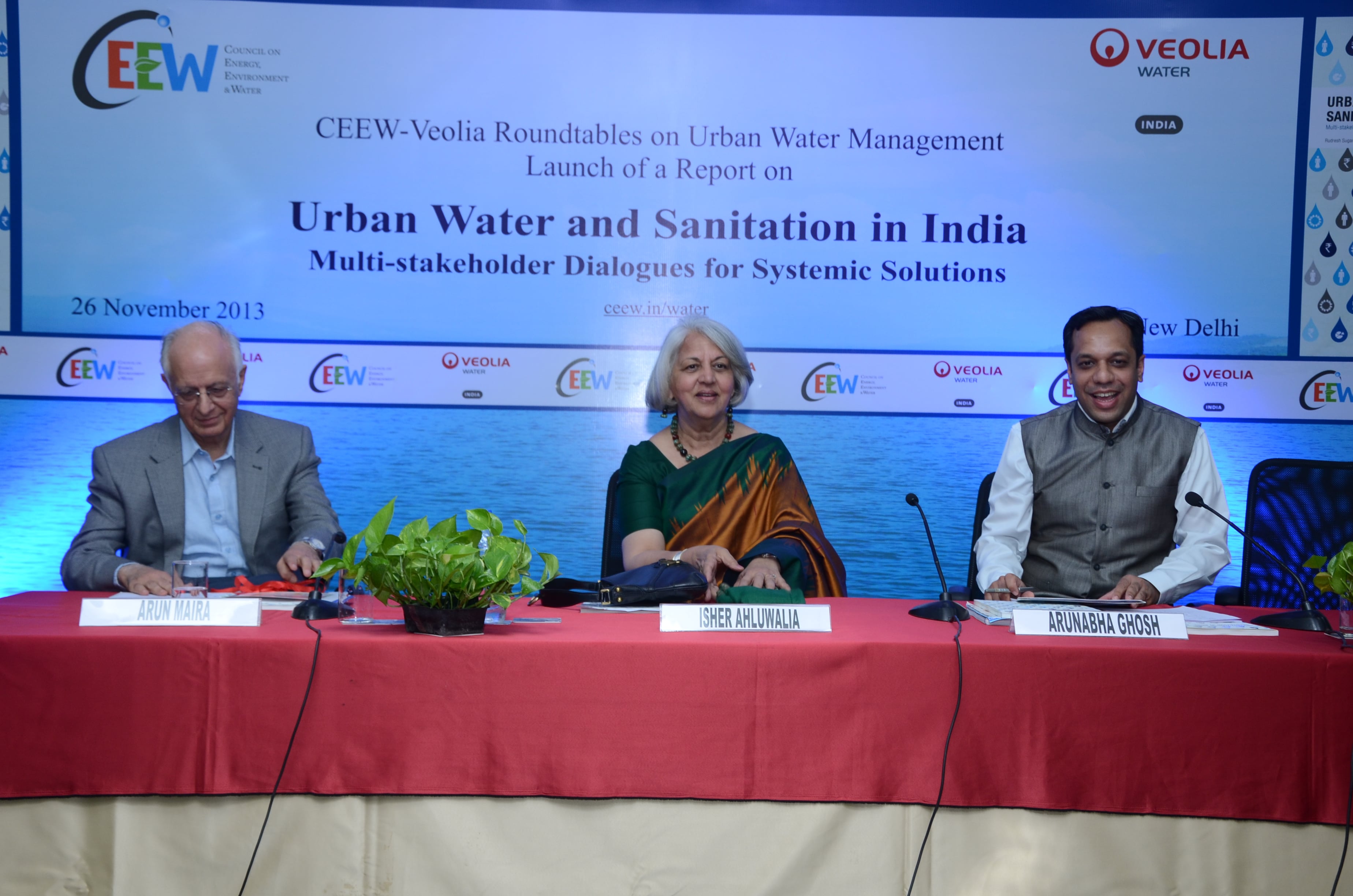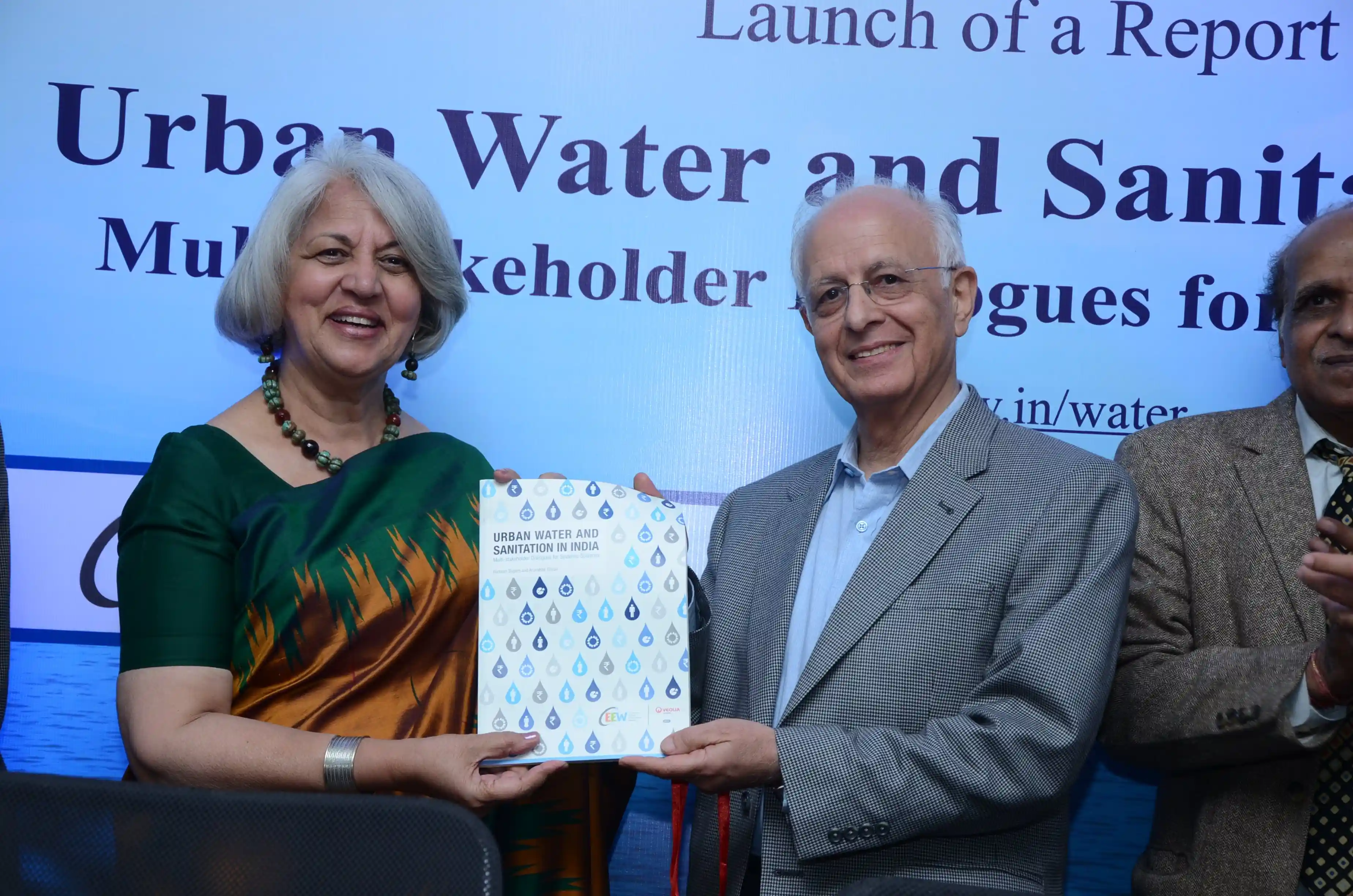




Dr Isher Ahluwalia, Chairperson of ICRIER, passed away earlier today after many months of painful illness. She was a distinguished economist, an institution builder, and a CEEW well-wisher. Dr Ahluwalia was the wife of our trustee, Mr Montek Ahluwalia.
I first met Dr Ahluwalia at a small dinner in Oxford and we had an engaging conversation about think tanks and public policy. I remember, at the time, the right to information bill had been passed recently and several other rights-based legislations were also on the anvil. I was working on my Ph.D. on international trade, so we discussed how our domestic development policies would square with our external economic priorities. A few months later, while working on the global trade governance project, I hosted a conference in collaboration with ICRIER.
Then, in 2012, after having written the National Water Resources Framework Study for India's 12th Five Year Plan, CEEW turned its attention to governance of urban water and sanitation. We convened a working group comprising water utilities, private sector stakeholders, community-based NGOs, think tanks and regulatory agencies. I reached out to Dr Isher Ahluwalia to chair some of the critical sessions of this group. (I had kept my engagements with Mr Montek Ahluwalia completely separate, to ensure that there was never any conflict of interest.)

She had no connection with CEEW and no reason to support our initiative. But she accepted my outreach. In the process, she learnt about CEEW and our work. She shepherded the dialogues with neutrality and equanimity. By the end of the year-long process, she and Mr Arun Maira (then-member, Planning Commission) released our report. It was the first such document that had reached consensus across so many players in the sector.
Over the years, she and I had many conversations about governance. They would often start with some data or case studies that she was looking for but would evolve into questions of governance and institutional reform. From conversations about macroeconomics to national development to local governance, I had the privilege of learning from her. She was always curious and always seeking solutions.
Dr Ahluwalia was an inspiration to many of us in public policy. India has lost an intellectual, an institution builder, and a true, committed woman in sustainability. Her legacy will certainly live on.
We extend our deepest condolences to Mr Ahluwalia, her sons and the extended family and hope that the fondest memories of Dr Ahluwalia give them strength at this time.
— Dr Arunabha Ghosh